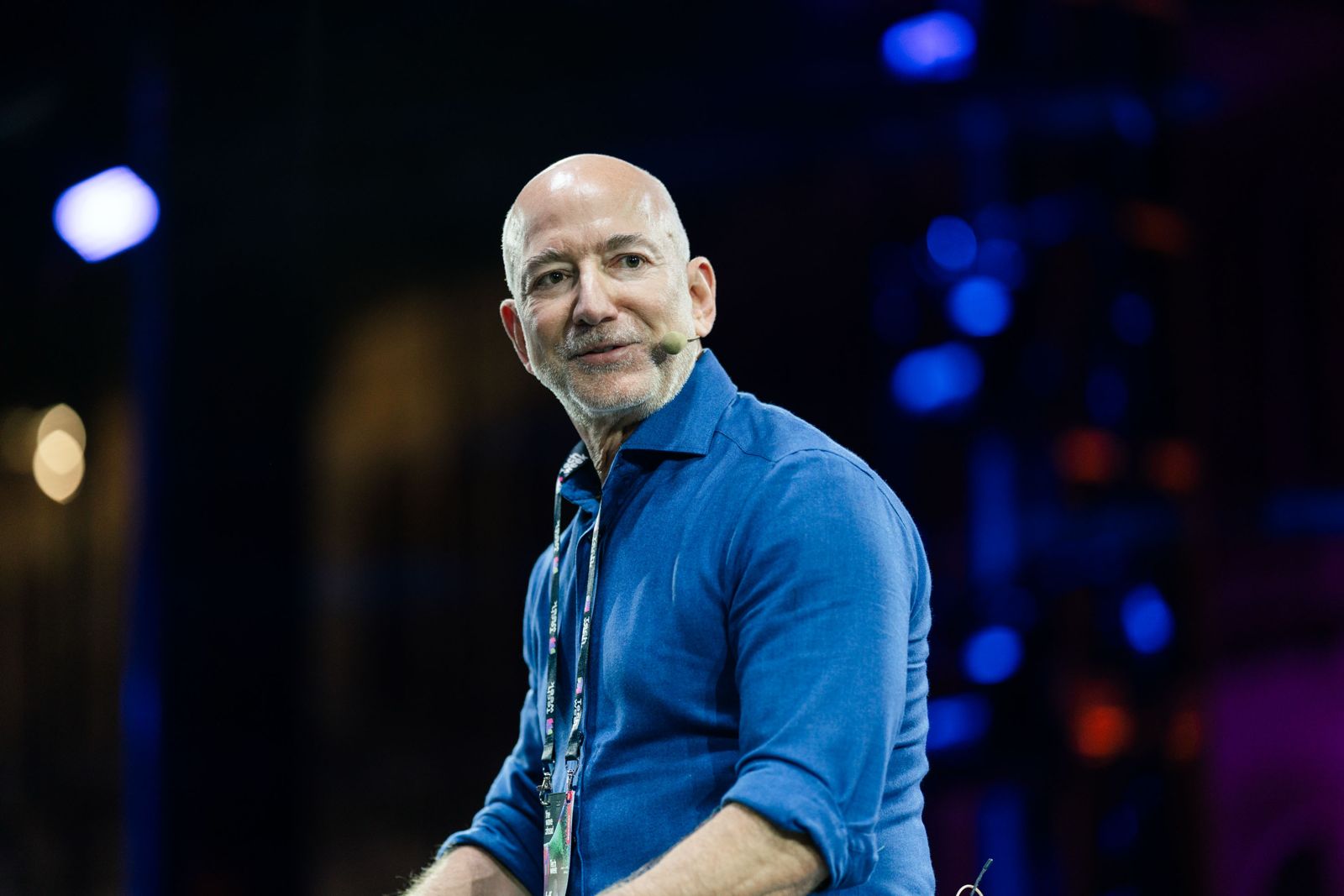Carlo Denza : 14 October 2025 07:25
Data centers in space, lunar landers, Martian missions: the future designed by Bezos in Turin. But the real revelation is the anecdote about his grandfather that reveals his human profile.
This year, Turin was once again the European capital of innovation for three days, with Italian Tech Week bringing together global icons from the tech scene and beyond. But the undisputed star? Jeff Bezos, who, between a vision of the future of AI and a moon landing, also gave the audience an unexpected life lesson.
In the coming decades, millions of people will live in space. This isn’t the plot of a science fiction movie, but reality. Jeff Bezos says it without batting an eyelid, as if talking about the opening of a new Amazon facility. It’s Friday, October 3, 2025, at the OGR in Turin , Italian Tech Week. An audience of thousands of people stands in religious silence.
Everyone hangs on his every word. John Elkann interviews him, an unusual role for the CEO of EXOR , but he excels.
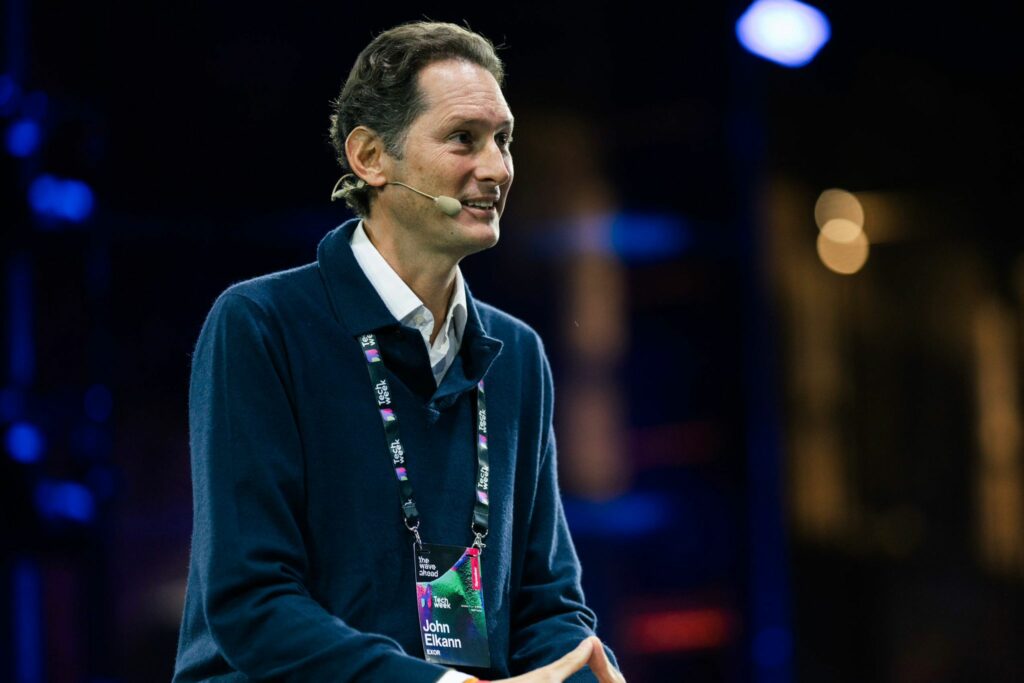
The founder of Amazon and Blue Origin spent an hour sketching the future. Orbital data centers training artificial intelligence with solar power around the clock , without clouds or bad weather to interfere. Lunar storage facilities for liquid hydrogen fuel kept at 22 degrees Kelvin —yes, 22 degrees above absolute zero—stuff that would make any engineer pale.
The Moon is seen as a service station for the rest of the solar system. Why? The Moon’s gravity is one-sixth that of Earth’s, so it requires much less energy to lift off.
All the global icons of our time have graced the ITW stage. From Sam Altman , Peter Thiel , and Daniel Ek . Venture capital giants: Sequoia , Andreessen Horowitz , and Atomico . Since 2018, this event has become the place where Italy tries to speak the same language as Silicon Valley. It doesn’t always succeed, but it tries. But Bezos is Bezos. And when he talks about space, people actually listen.
Blue Origin: From the Moon to Mars
Bezos is no longer limiting himself to e-commerce. He’s aiming high, much higher. Between late October and early November 2025, Blue Origin is expected to launch New Glenn into Martian orbit, carrying NASA’s Escapade satellite around Mars.
Another ambitious project is the hydrogen lunar lander. Blue Origin has developed solar cryo-refrigerators that keep liquid hydrogen at 22 degrees Kelvin, essentially 22 degrees above absolute zero, or -251°C. The reason is to solve a problem that has plagued astronautics for decades. Hydrogen offers great advantages as a fuel, but managing it in liquid form is complex and evaporates so quickly that until now it has been unusable for long missions.
Leaving no room for doubt, Bezos explains that the Moon will no longer be the exclusive preserve of poets and lovers but will become a refueling station, a fuel depot. The Amazon founder justifies this choice with a simple fact: the Moon’s gravity is one-sixth that of Earth; therefore, it takes about 30 times less energy to lift a load from the Moon. Refueling there instead of always starting from here makes obvious economic sense.
But there’s more. Massive data centers in space within a decade or two, gigawatt supercomputers to train AI. With 24/7 solar power, no clouds or bad weather. ” Millions of people will live in space in the coming decades ,” says Bezos. ” But mostly because they want to. Robotics is becoming so advanced that robots will do the heavy lifting, while people will go there by choice.” At least on paper. The technology already exists: the GPGPU and CUDA architectures that power Earth-based supercomputers, which need to be adapted for orbit. At least on paper.
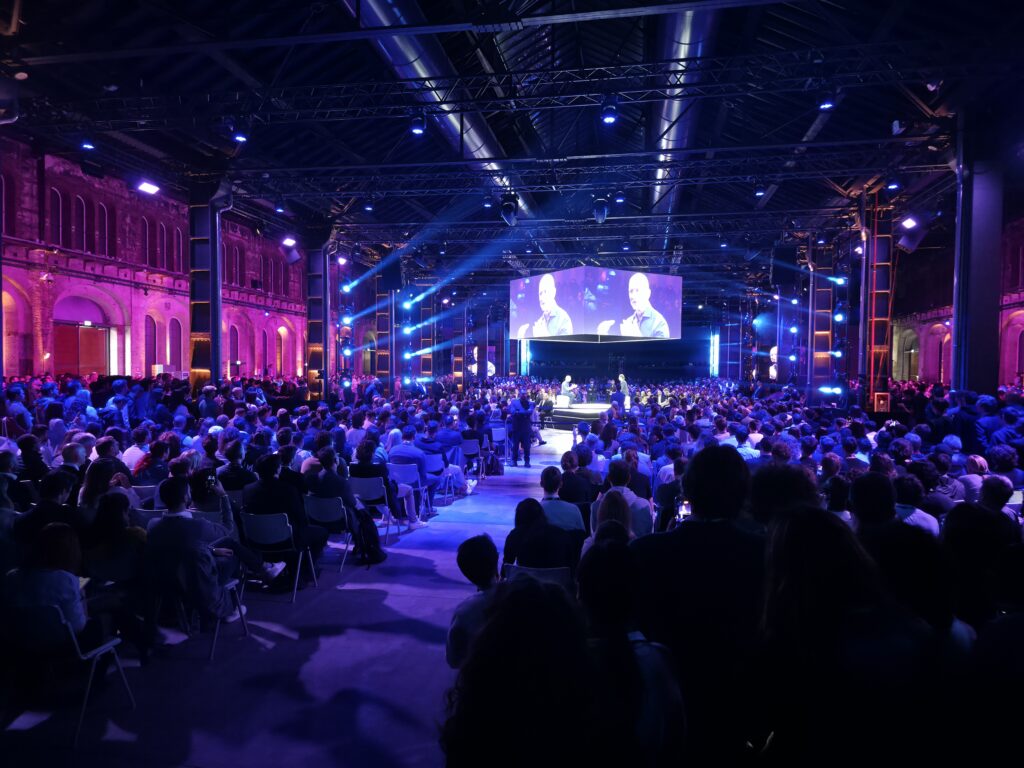
Artificial Intelligence: where will the impact be?
On artificial intelligence, Bezos is categorical: “It’s real, it will change everything.” He makes an important distinction, however. Today we’re talking about OpenAI , Anthropic , and “AI-first” startups. “But that’s not where the real impact will be. AI will end up in every company in the world: manufacturing, hotels, consumer goods, everything. It’s destined to increase quality and productivity everywhere.”
He then presses the audience with a comparison to the fiber optics of the 1990s. Almost all of the companies that laid them went bankrupt, but the fiber has remained for the benefit of all. And finally, he fine-tunes his speech: “We live in a multiple golden age: AI, robotics, space. There’s never been a better time to be an entrepreneur.”
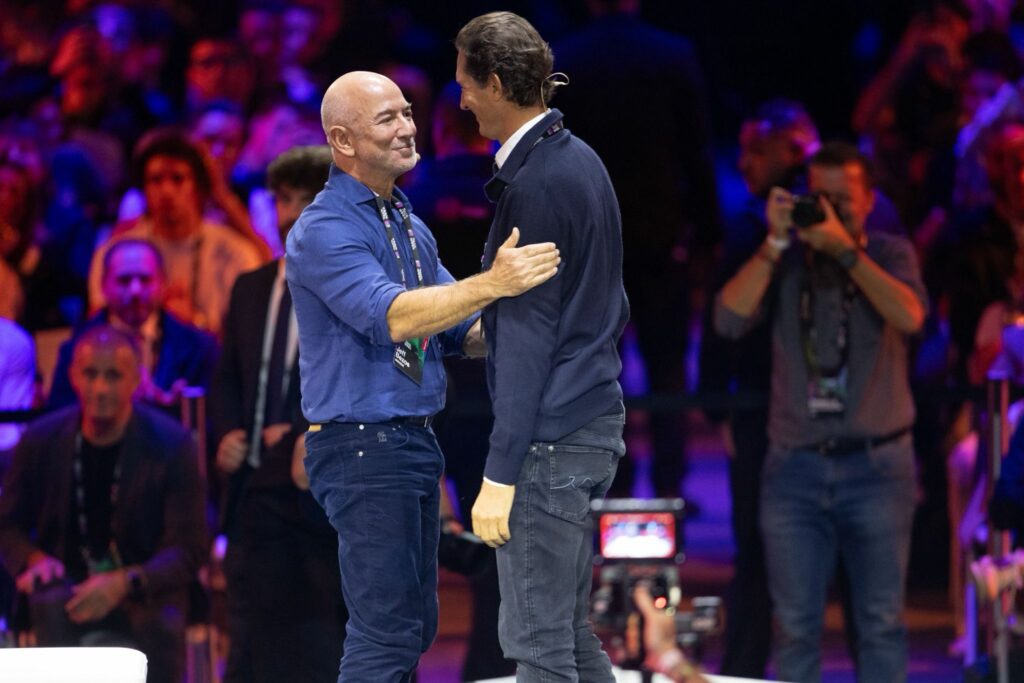
Grandfather’s lesson
At this point, Elkann changes tack. The EXOR CEO talks about his grandfather, Gianni Agnelli , and how important he was to him. Bezos responds by sharing a personal story not found in any biography. His mother had him at 17, in high school in Albuquerque. She was facing expulsion for her pregnancy, but his grandfather intervened: “No, you can’t. It’s a public school. He has the right to finish.” And so he did.
His grandparents took him every summer to their ranch in Texas. During one of these car trips, when he was about 10 years old, an incident occurred that Bezos still remembers. His grandmother was smoking in the car. He had just heard on the radio that each cigarette shaves two minutes off your life; so, he did his genius-level calculations and triumphantly told her how many years she had been “smoking.” His grandmother burst into tears. His grandfather pulled over, took him outside, and said something he’ll never forget: “Jeff, one day you’ll understand that it’s harder to be kind than it is to be smart.”
Optimism and kindness. It brings to mind that commercial in which Tonino Guerra said: “Gianni, optimism is the fragrance of life.” Perhaps Bezos, in his own way, is spreading the same fragrance.
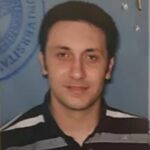 Carlo Denza
Carlo DenzaGraduated in computer science, and as an electronics expert. He attended the Course of Study in Computer Science at the Faculty of Science MM.FF.NN. at the Federico II University in Naples. After a course in Java, he collaborated on the development of a web application for services in the health care field. He publishes a pamphlet, a collection of popular articles.
